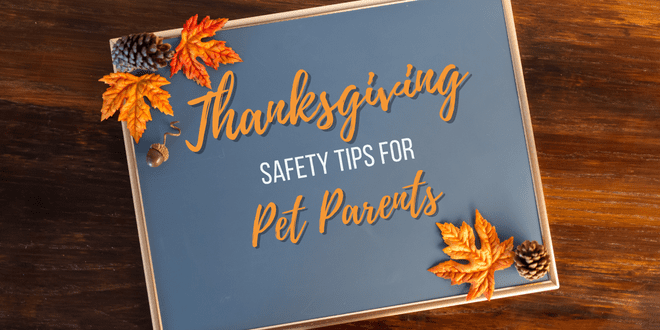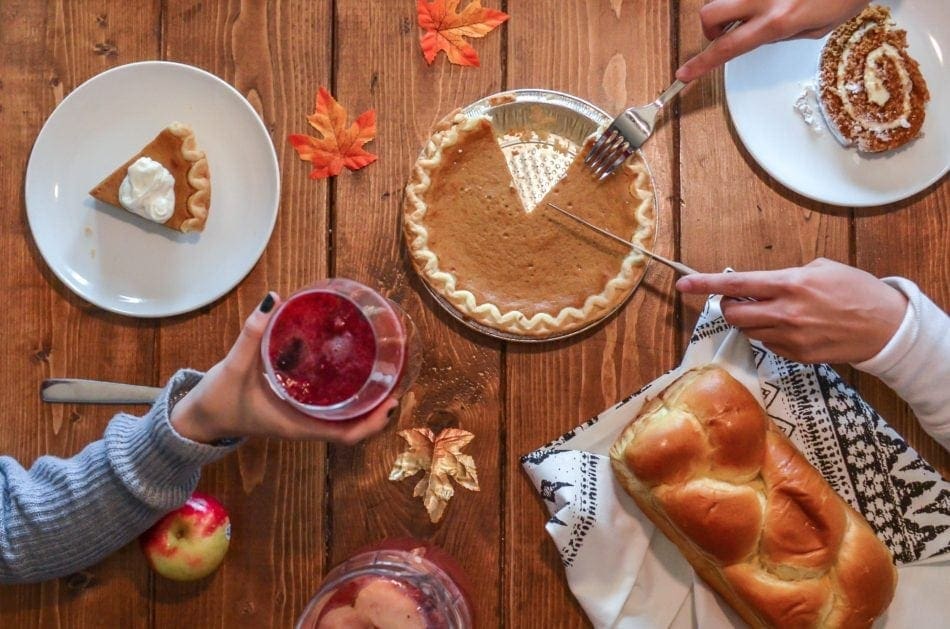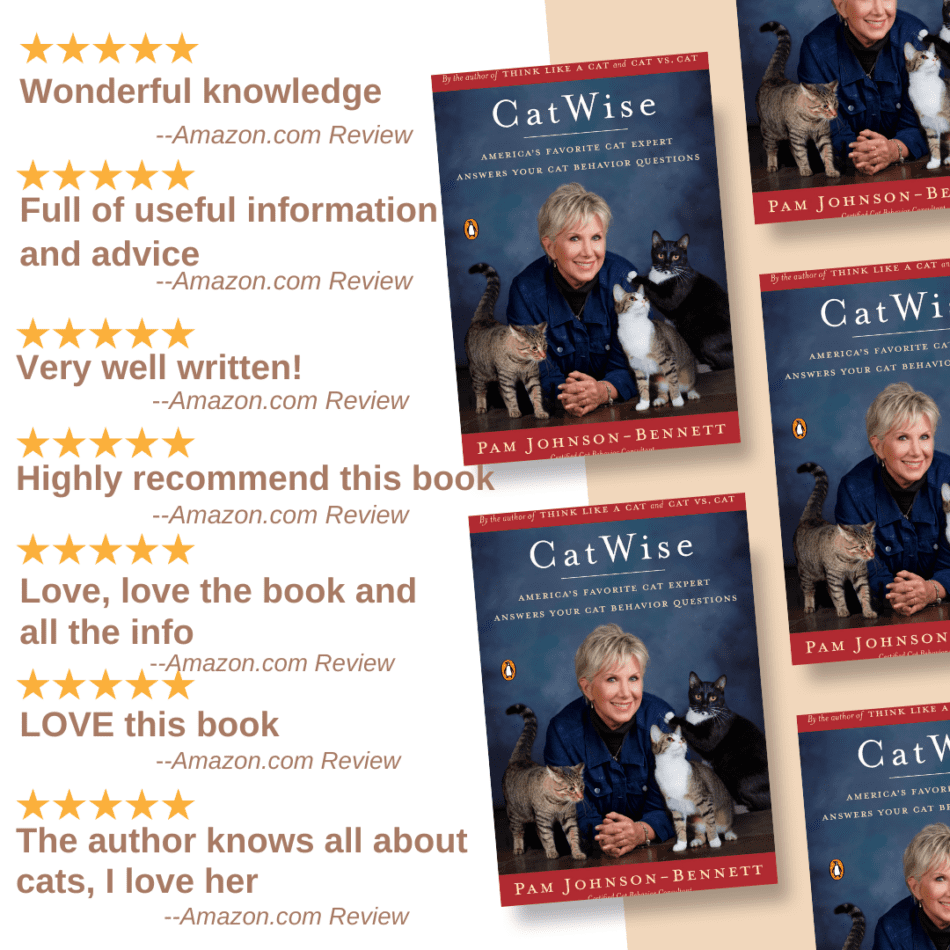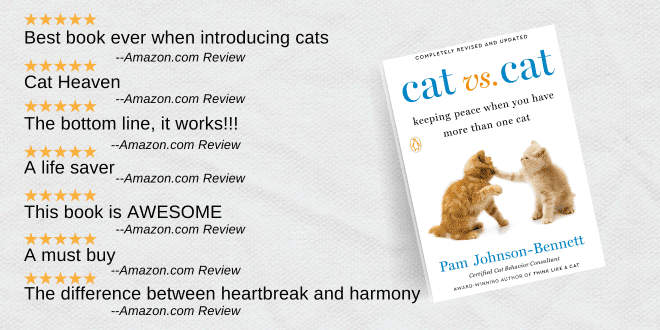
Thanksgiving is just around the corner. If you share your home with a pet who tends to help himself when it comes to holiday food, it’s important to take some extra precautions to make sure everyone, including the feline and canine members of the family have a safe holiday. Some cats and dogs have no interest in what is being served on the dining table but others make it their mission to swipe a few tasty morsels. If your pets are focused on sharing in the Thanksgiving meal, it’s best to just let them sit the holiday out in another room.
Rich and Spicy Food
It’s not a good idea to allow your pets to indulge in foods that aren’t a part of their regular diet. Everyone has a memory of some family member who always over-indulges when they visit for the holidays and ends up needing major doses of antacid tablets. Holiday foods are usually much richer than our normal diets and your pets are just as susceptible to stomach problems as you are.

Photo by Element5 Digital on Unsplash
Turkey
Although turkey itself is safe, turkey bones can splinter and cause internal damage or choking. Don’t allow your pets to have access to them. Make sure you don’t leave the turkey carcass out on the counter or in an open trash can where pets can gain access to it. You don’t want to be spending Thanksgiving night at the animal emergency clinic.
Onions and Garlic
Most of the holiday foods are prepared with onions and/or garlic. Onions are toxic to pets and can even be fatal. Onions destroy red blood cells which results in Heinz body anemia. Both raw and cooked onions are toxic and even onion powder isn’t safe. Garlic, although not as toxic as onions, still damages red blood cells and isn’t a safe food for pets.
Gravy
Gravy is high in fat and is usually flavored with onions or garlic. Keep it away from pets.
Turkey Stuffing
Stuffing usually contains onions and garlic which are toxic. Stuffing is also typically heavily spiced which can cause stomach upset. The bread in the stuffing has a high salt content as well.
Bread Dough
Ingesting raw bread dough can be a life-threatening situation for your dog or cat. The yeast in the dough can result in serious bloating and even lead to obstruction.
Chocolate
Chocolate contains a substance called theobromine which is highly toxic to dogs and cats. It can cause heart attacks. Chocolate also causes vomiting and diarrhea. Cats typically don’t have a sweet tooth but may ingest chocolate if hungry enough or if they’ve developed a taste for sweets by having been fed sugary foods by the human family members.Chocolate also contains caffeine. Dark chocolate and baking chocolate contain higher quantities of theobromine and caffeine.
Pie and Other Desserts
The high fat and sugar content in desserts make them something your pets don’t need. Desserts made with chocolate can actually be extremely toxic to cats and dogs. Grapes, raisins, and currants are also toxic, whether by themselves or baked into a dessert. The sugar substitute, Xylitol, is also toxic to dogs, even in small amounts. Xylitol causes a sudden increase in insulin. Xylitol toxicity in cats is not yet fully known but don’t risk it.
Alcohol
If your dog or cat has a tendency to try to stick their nose in any glass of liquid they find on the coffee table, keep them out the room where guests are drinking or make sure all glasses are kept out of reach.

Photo by Kelsey Chance on Unsplash
Create a Sanctuary
Whether your pets make a non-stop attempt to get food or are just easily stressed by the large number of visitors in the home, the best solution may be to set them up in a sanctuary room where no visitors will enter. You can even put a sign on the door to make sure no one allows pets to escape. If you have a dog, a baby gate across the room’s entry may be the solution for a pup who wants to see what’s going on and be a part of the holiday social scene but needs to remain safe. For a cat, set up a separate room where they can have their own food, litter box, some toys, and a cozy place to nap. With my cat, I let her indulge in a little catnip party in her sanctuary room. After a great play session, she’s ready for a good cat nap.
Keep an Eye on Stress Levels
If you allow your cat or dog to remain in the middle of the celebration, keep watch over any changes in their mood. What may start out initially as fun and exciting may turn into over-stimulation or stress. Your pets may have originally enjoyed being the center of attention but may now be trying to avoid being petted. Even if you didn’t feel the need at the beginning to place your pets in a separate room, it may now be time.
Things Belonging to Your Guests
Be mindful of your guests’ handbags and suitcases so pets don’t get into them. A guest may have candy or medication in there that could be toxic if ingested by a pet. Put bags in a separate room. If guests want their handbags close by, place the bags on elevated surfaces or hang them up out of a pet’s reach.
Coming and Going
If you have pets who tend to door dart, or if you’re worried about your pets being accidentally let outside, place them in a separate room. For dogs, you may be able to confine them to a limited area by a gate. You can also put a sign on the door to remind guests to be careful when going in and out. Just to be on the safe side, make sure your pets have identification in the form of ID tags on collars and/or are microchipped.
The Trash Can
With guests over for the holiday, and the abundance of food, your trash can will be filled with more enticing aromas than normal. It may be too easy for a pet to swipe that piece of tossed out pie or tidbits of turkey sitting right on top. Keep your trash can in a cabinet or use one with a locking lid. When you dispose of the turkey carcass, place it in the outside trash can. Be aware that even cooking twine or anything the turkey came wrapped in is also a danger.
Act Immediately in an Emergency
If you suspect your pet has ingested something dangerous, contact your veterinarian or animal emergency clinic right away. You can also contact the ASPCA Poison Control Hotline at 888-426-4435. What’s most important is that you act immediately.
I wish you and your pets a very happy and safe Thanksgiving.
Need More Information?
For more specifics on cat safety, cat training or cat behavior problems, refer to the books by best-selling author Pam Johnson-Bennett. Pam’s books are available at bookstores and online. We’ve included links to Amazon here on our website.
If you have a question regarding your cat’s health, please contact your veterinarian. This article is not intended as a replacement for your cat’s veterinary care.
 Problem Solving & Advice by Pam Johnson-Bennett Cat Behavior Expert & Best-selling Author
Problem Solving & Advice by Pam Johnson-Bennett Cat Behavior Expert & Best-selling Author



